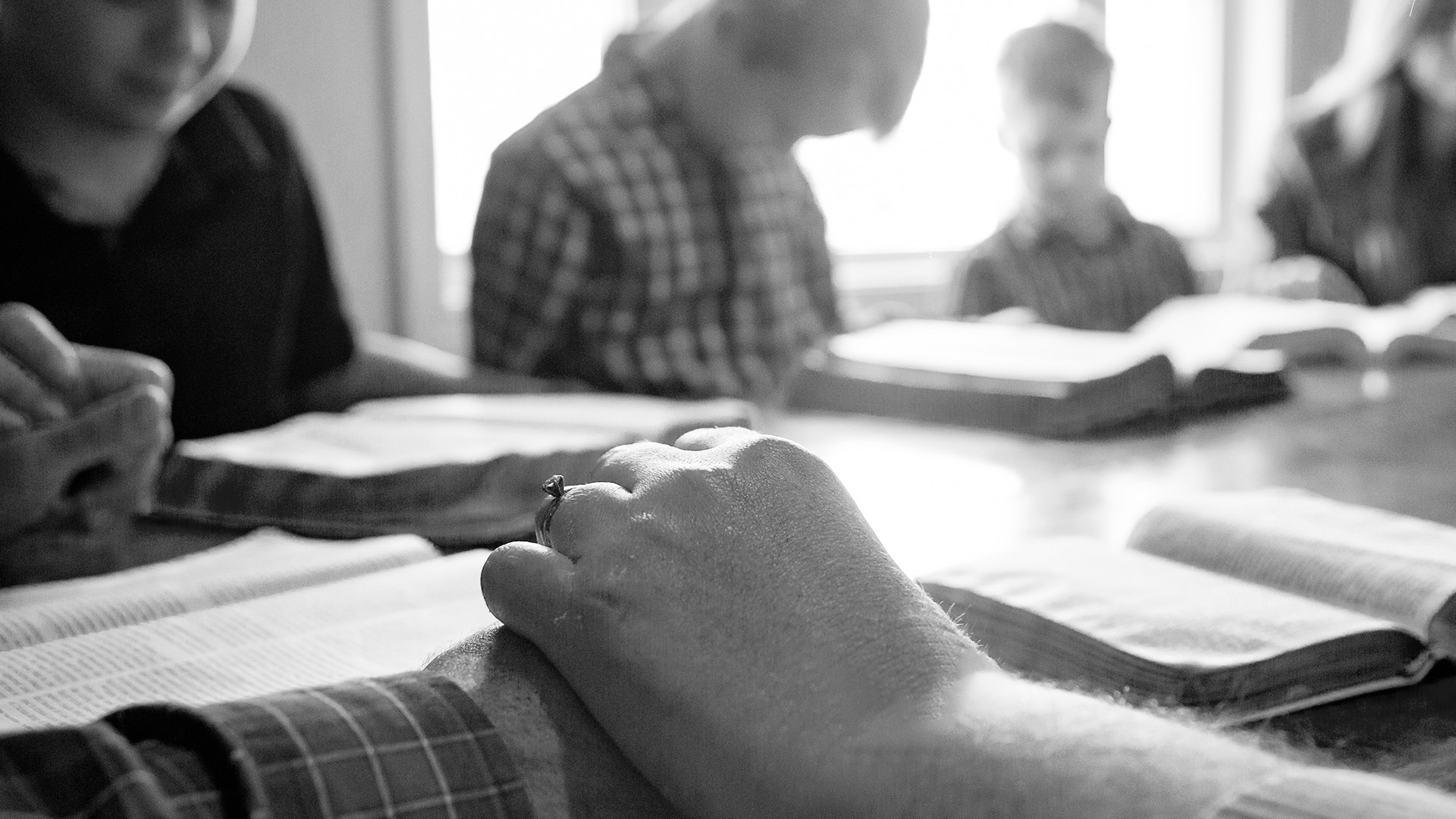When I returned home from college last semester, one of the first things I did with my family was “Bible time.”
That’s what we call our family devotional time, which includes reading the Bible, praying, and singing a song together. Usually we do it in the evening, and it has come to signal a time to slow down and find relief together from the day’s business and activities. While the length of each day’s Bible time varies and our consistency has fluctuated, this hasn’t reduced its importance in my life.
I didn’t realize this until I was separated from Bible time. On a trip home from college, after not being part of family devotions for a while, I was able to see many of the lessons my parents were teaching me through them.
Lesson #1: The Bible Is Valuable
My parents’ commitment to frequently spending time in Scripture instilled in me the value of the Bible. There were many times it would’ve been easier for my parents to forgo Bible time—after rough days, on late nights, during a busy season—but my parents’ choice to still have family devotions showed me the importance of making time to spend in the Bible.
Because my parents made the Bible a central aspect of our lives, I could see it was more than just a good book. Their example has constantly encouraged me to implement regular Bible study in my life.
Lesson #2: How to Structure Devotions
Because my parents made the Bible a central aspect of our lives, I could see it was more than just a good book.
How my parents structured Bible time has influenced how I structure my own devotions. The pattern of reading God’s Word, bringing requests before God, and praising God was critical to teaching me how to grow in my relationship with Christ.
While these three things are necessary for a healthy Christian walk, I tended to separate them from each other. But my parents used Bible time to show us that all three exist together. Their quiet example of including prayer and praise in the study of the Bible has shaped my own practices.
Lesson #3: Why We Study Corporately
My parents both studied the Bible independently and encouraged us to study the Bible for ourselves. While they stressed the importance of personal devotions, they also taught us to value studying the Bible with others. Reading it out loud, discussing it together, and then coming together in prayer and praise is an important part of the Christian walk.
Lesson #4: Persistence and Peace
There were times when family devotions seemed an annoyance and days I’d have chosen to skip them. But my parents’ insistence on having Bible time gradually transformed it from something to be dreaded to something I looked forward to. They taught me that peace can be found in the Bible and helped me to persevere in finding it there. Bible time became a refuge from the struggles of each day.
Our record wasn’t perfect. There were stretches when we’d miss family devotions for days or even weeks. But that was when my parents set one of their most important examples for me. Rather than give up, they picked it up repeatedly. Each time they started again, the periods of consistent Bible time grew longer, and the periods without Bible time decreased.
This has become more important to me as I’ve become semi-independent and seen the many ways I fall short in my Christian walk. My parents also fall short, but, rather than “throwing in the towel,” they persevere in growing closer to God and defeating the sin in their lives.
Bible time became a refuge from the struggles of each day.
Even though my parents didn’t get everything right, they did give me consistent, structured exposure to the Bible. Their commitment to having family Bible time helped shape my view of Scripture and even how I handle failing at reading it. They not only told me but showed me what the Bible is worth and how to study it. Through Bible time I learned the value of persevering, both in seeking God and in putting sin to death.
Because of my parents’ influence, I value the Bible, and because of their teaching, I continue to seek after God—even when it’s inconvenient or difficult.
